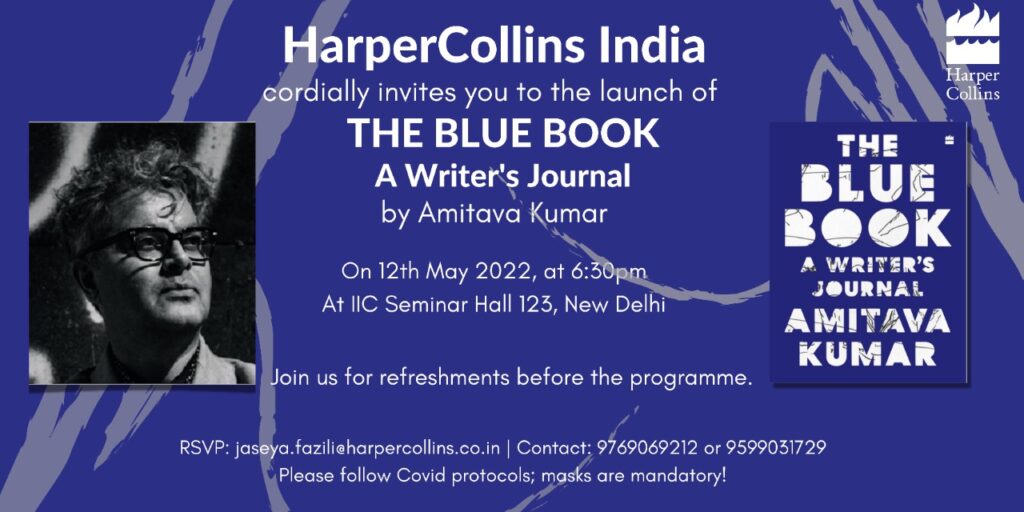
Dateline Delhi


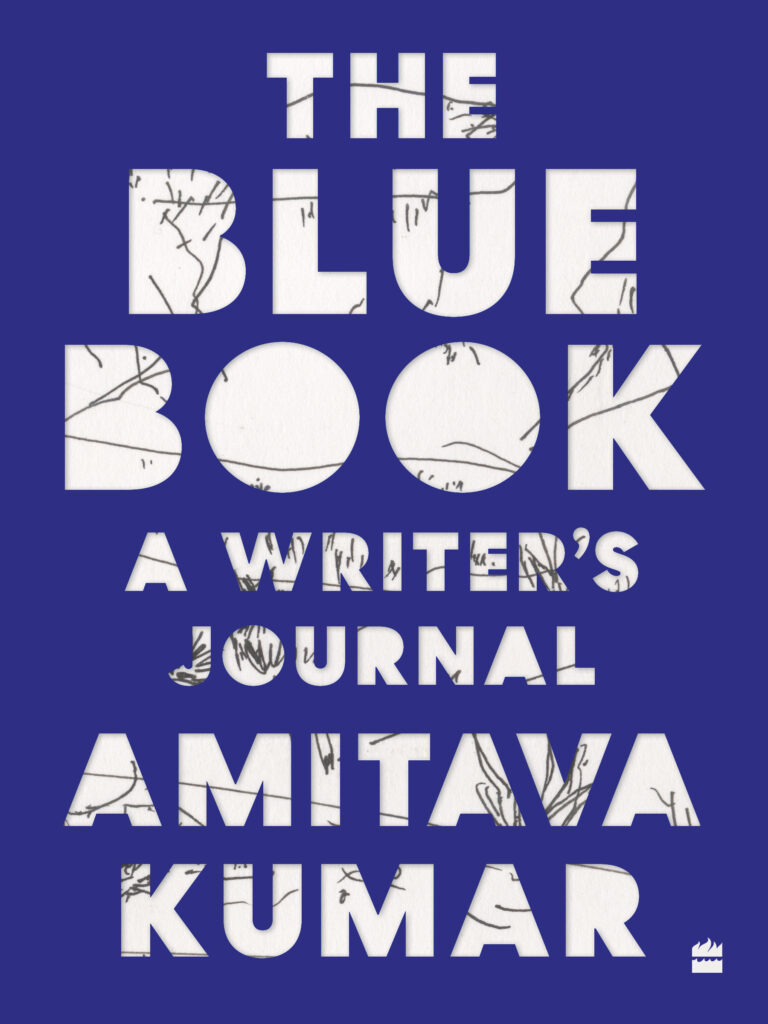
“To mull over a beautiful line while looking upon a beautiful painting is the sublime pleasure offered by Amitava Kumar’s The Blue Book. This painted diary is a collage of the personal and the political, of terrifying news, the fleeting seasons, everyday pleasures, precious conversations, families and friendships—and on every page, the solace of art.” — KIRAN DESAI
“A lovely homage to—and extension of—the tradition of writer-artists such as John Berger.” — GEOFF DYER
“It’s not good to read another person’s diary. But Amitava Kumar makes the experience so intimate in The Blue Book that you don’t feel guilty. You feel like it is your own.” — GULZAR
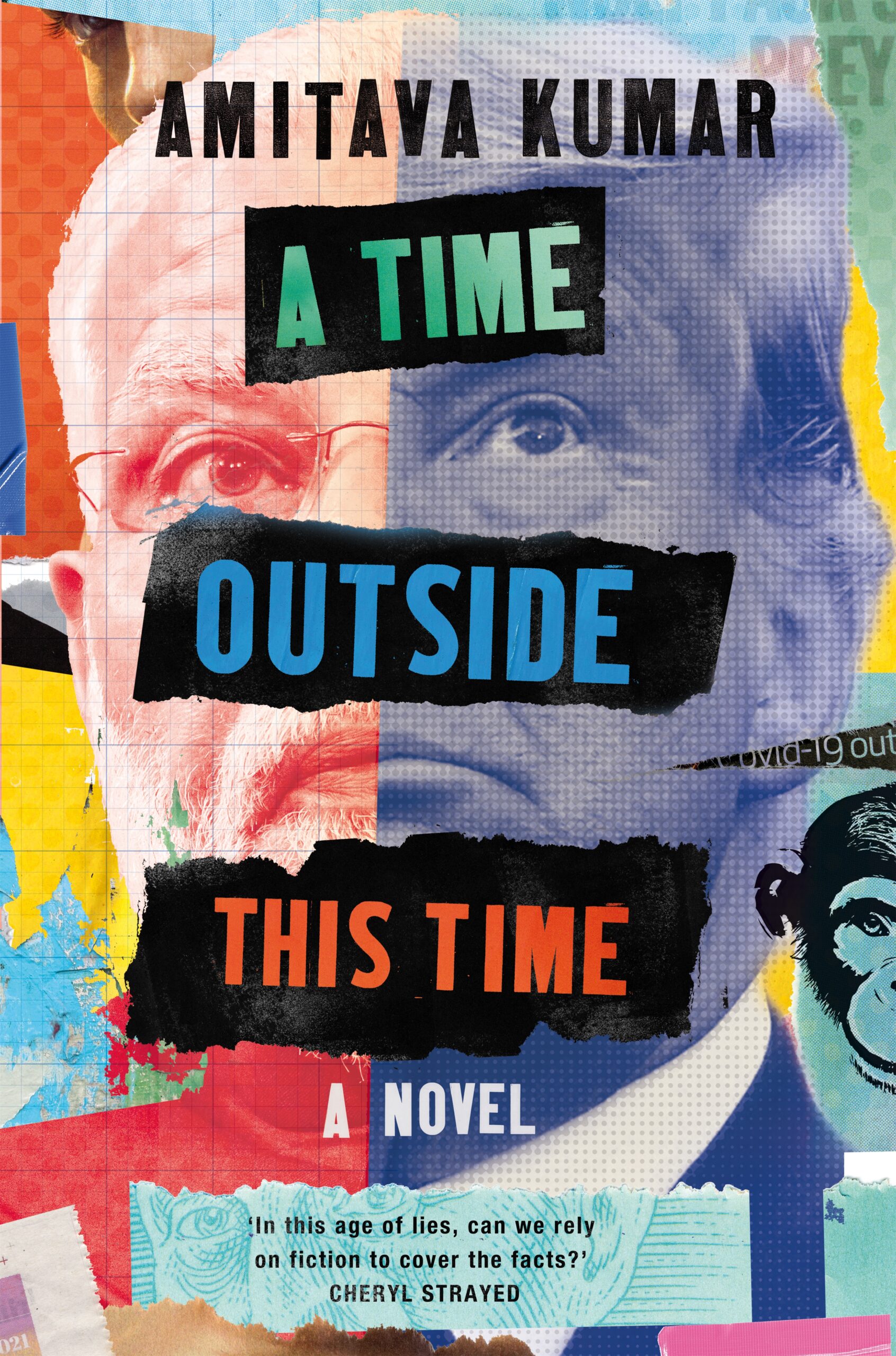
Picador/Pan Macmillan is bringing out the UK edition of my novel on Jan 6, 2022. Run, don’t walk, etc.

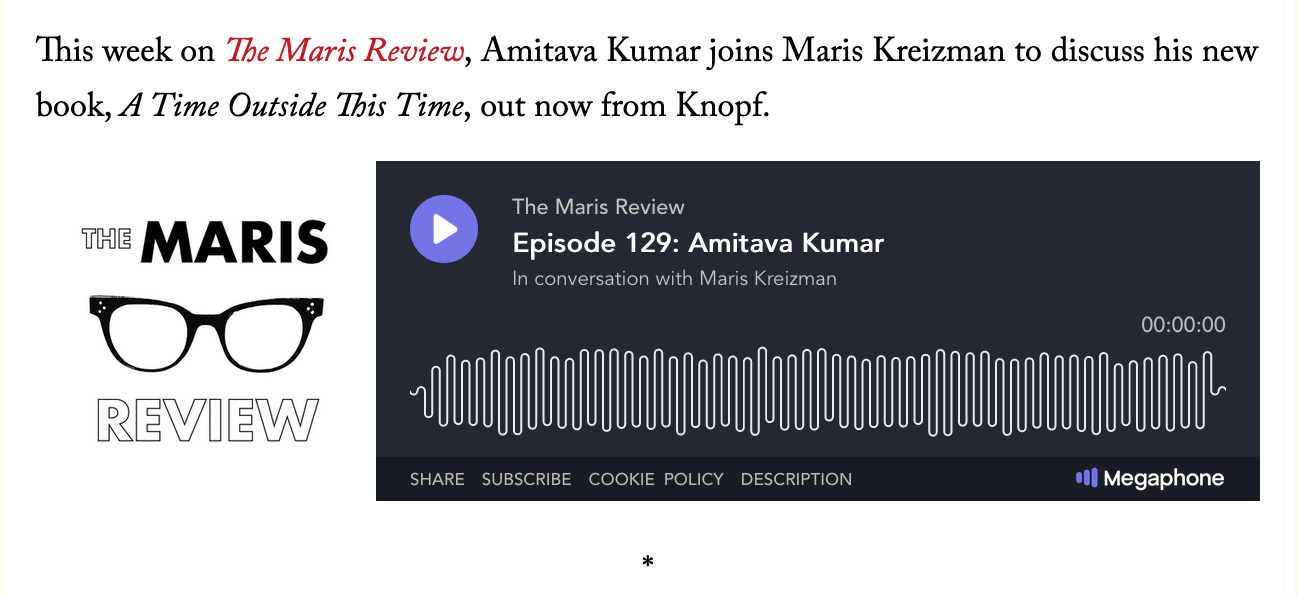
Listen to Episode 129 on the Maris Review
On writing fiction while surrounded by fake news:
Amitava Kumar: The idea of how the world comes into your mundane life, how to find an imprint of that on the page, I think that’s what novels are doing these days. My novel is an investigation into that feeling when the pandemic comes rushing in. Why write fiction when you’re surrounded by the fiction of fake news? In the process of writing the book I was struggling with this question, and I’m not sure I really have an answer for it. But I was trying to say, for example, one horror would be succeeded by another horror so quickly that I would forget what had happened on Tuesday. So I thought okay, why don’t I make my novel a record of what’s happening.
More here
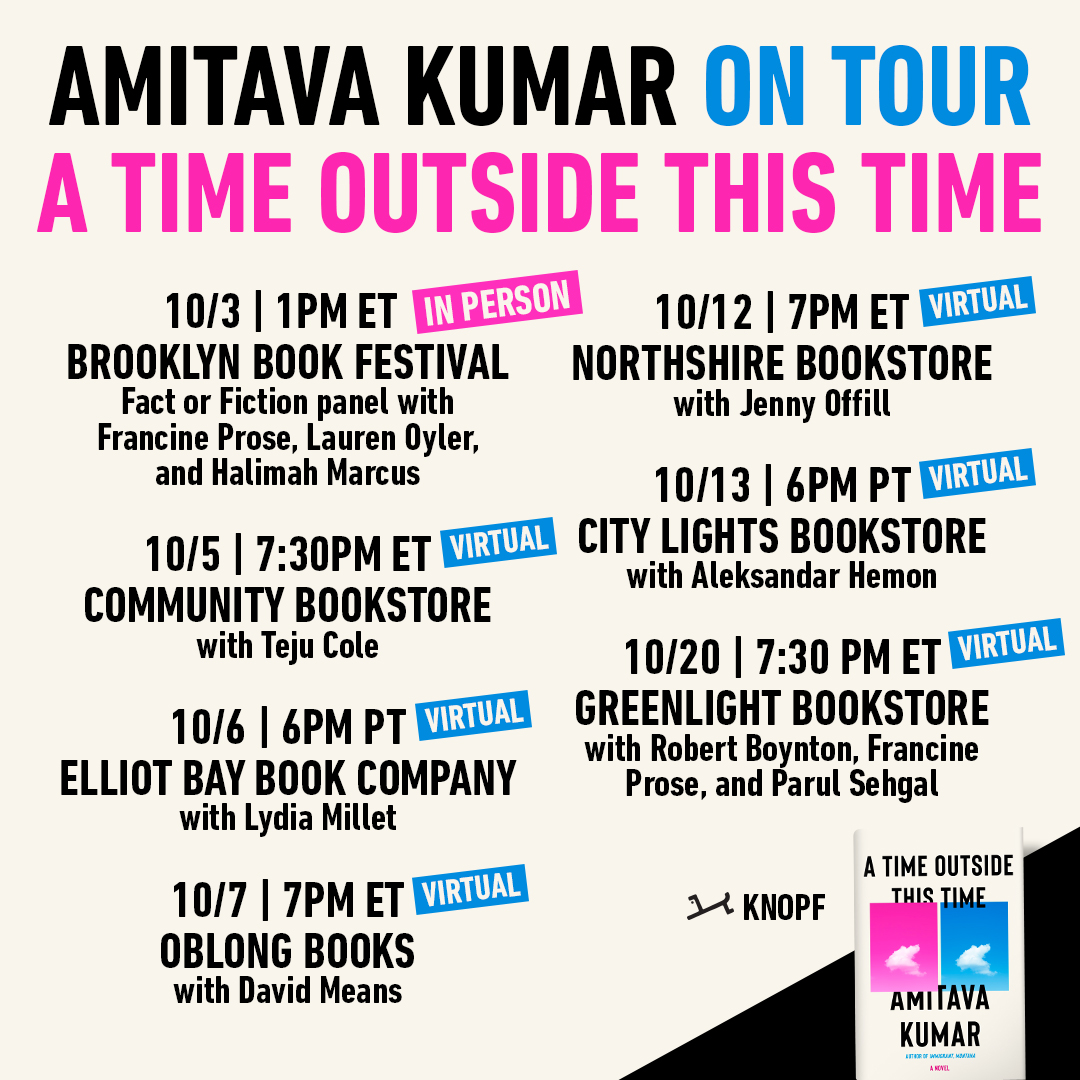
Click here to register for the 10/5 event with Teju Cole at the Community Bookstore
Click here to register for the 10/6 event with Lydia Millet at the Elliott Bay Company
Click here to register for the 10/7 event with David Means at Oblong Books
Click here to register for the 10/12 event with Jenny Offill at Northshire Bookstore
Click here to register for the 10/13 event with Aleksandar Hemon at City Lights Bookstore
Click here to register for the 10/20 event with Francine Prose, Robert Boynton, and Parul Sehgal at Greenlight Bookstore
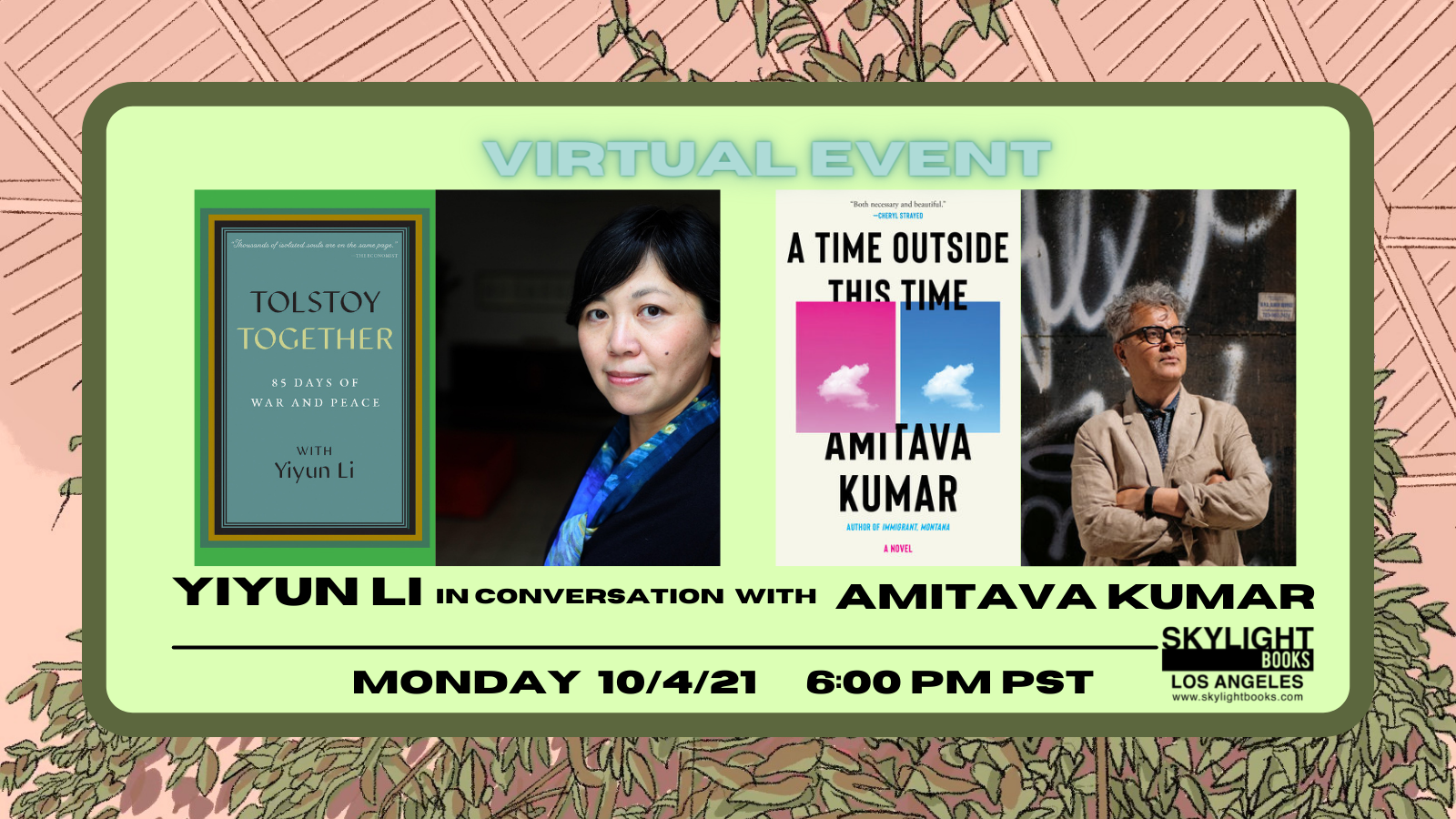
Last year in March, the pandemic weighing heavy over us, the writer Yiyun Li made a generous proposal: we could read 15 or so pages of Tolstoy’s War and Peace every day as a part of an online community #TolstoyTogether. Yiyun said, “I have found that the more uncertain life is, the more solidity and structure Tolstoy’s novels provide. In these times, one does want to read an author who is so deeply moved by the world that he could appear unmoved in his writing.” We finished reading War and Peace in 85 days, thousands of readers spread across the planet. A Public Space, the literary organization that brought us together under Yiyun’s guidance, has just come out with a book Tolstoy Together. Yiyun and I will be talking about this entire experience by Zoom on Oct 4. Here is the registration link: https://www.crowdcast.io/e/skylit-li/register
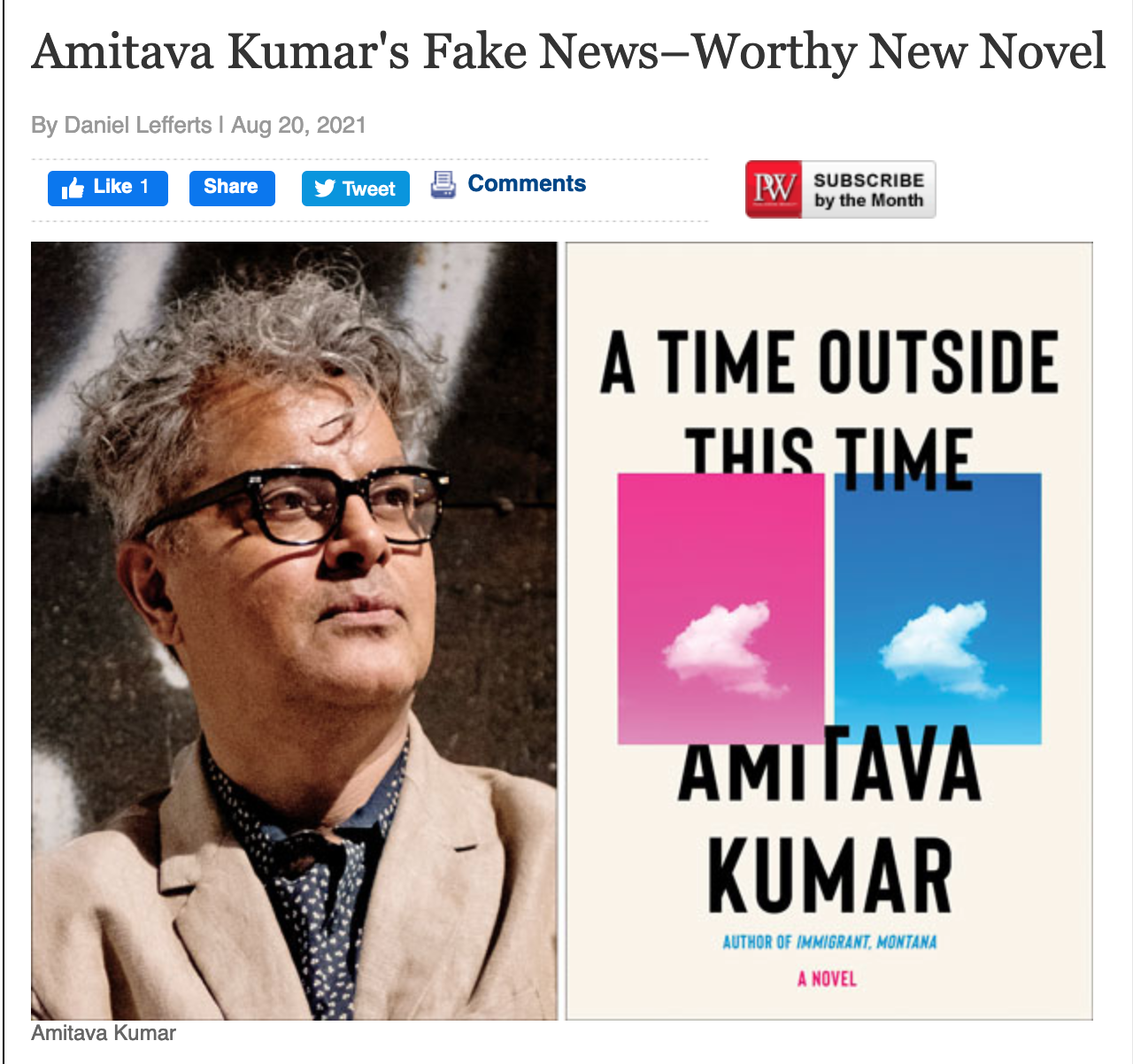
Here’s the link to the profile in Publishers Weekly.
Kumar’s bibliography is, like A Time Outside This Time, a mix of reportage, cultural criticism, and fiction. His books include Passport Photos, a genre-blending investigation of postcolonialism and migration; Husband of a Fanatic, an autobiographical reflection on Hindu-Muslim relations in India; and A Foreigner Carrying in the Crook of His Arm a Tiny Book—partly an account of two suspected terrorists and partly a study of 9/11’s effect on art and culture.
Kumar’s breakout novel, Immigrant, Montana, published in 2018, laid the groundwork for A Time Outside This Time; it too intersperses its narrative with essayistic digressions. The New Yorker called the book, somewhat perplexingly, a “nonfiction novel” and compared it to the work of autofiction eminences Ben Lerner and Sheila Heti.
Kumar isn’t quite comfortable with the term autofiction. (Novelists charged with writing it tend not to be.) “What is usually presented as autofiction is narrowly a story of the self,” he says. “I wanted to mess with that idea. I’m not someone who is describing getting up from this table, making tea, going into the bathroom, coming out, making a call to my wife.”
More.
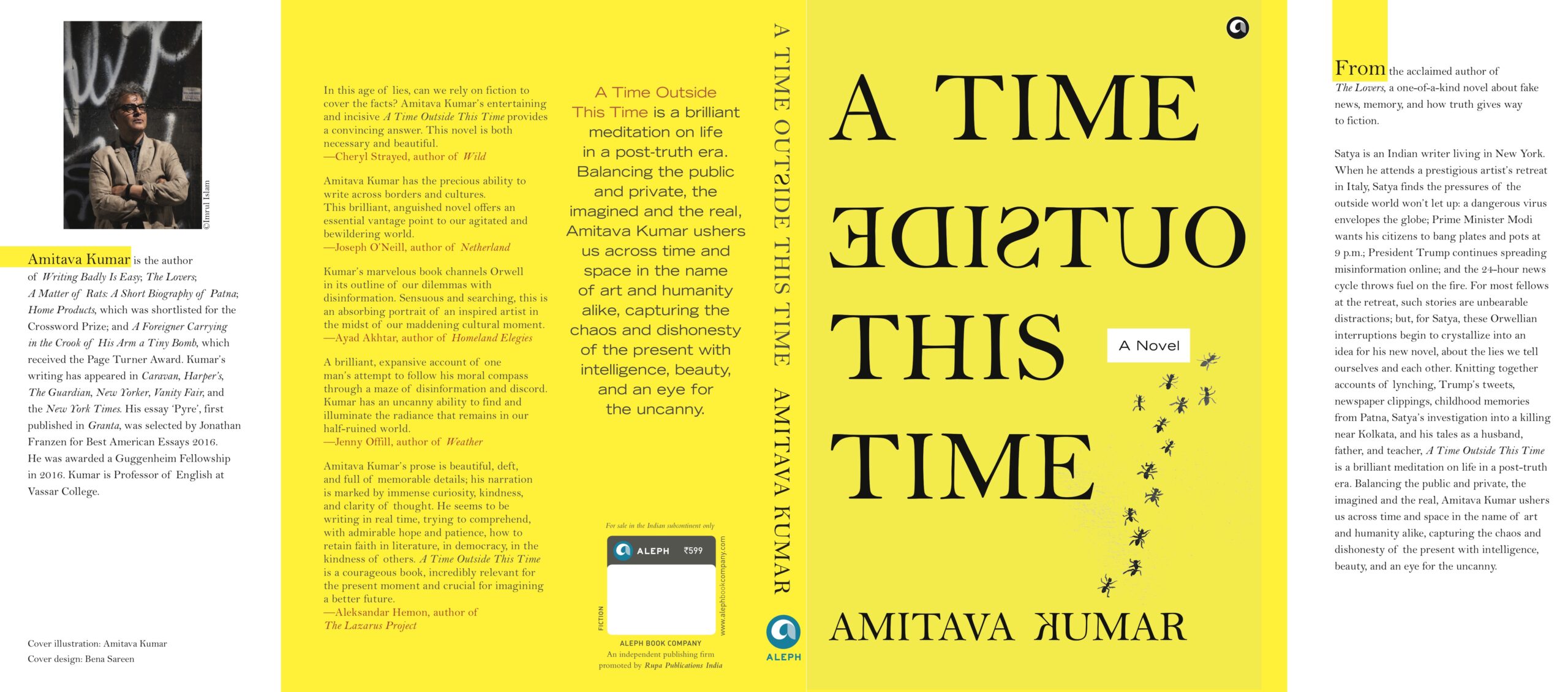
Thank you, Aleph Book Company and Bena Sareen for the design.
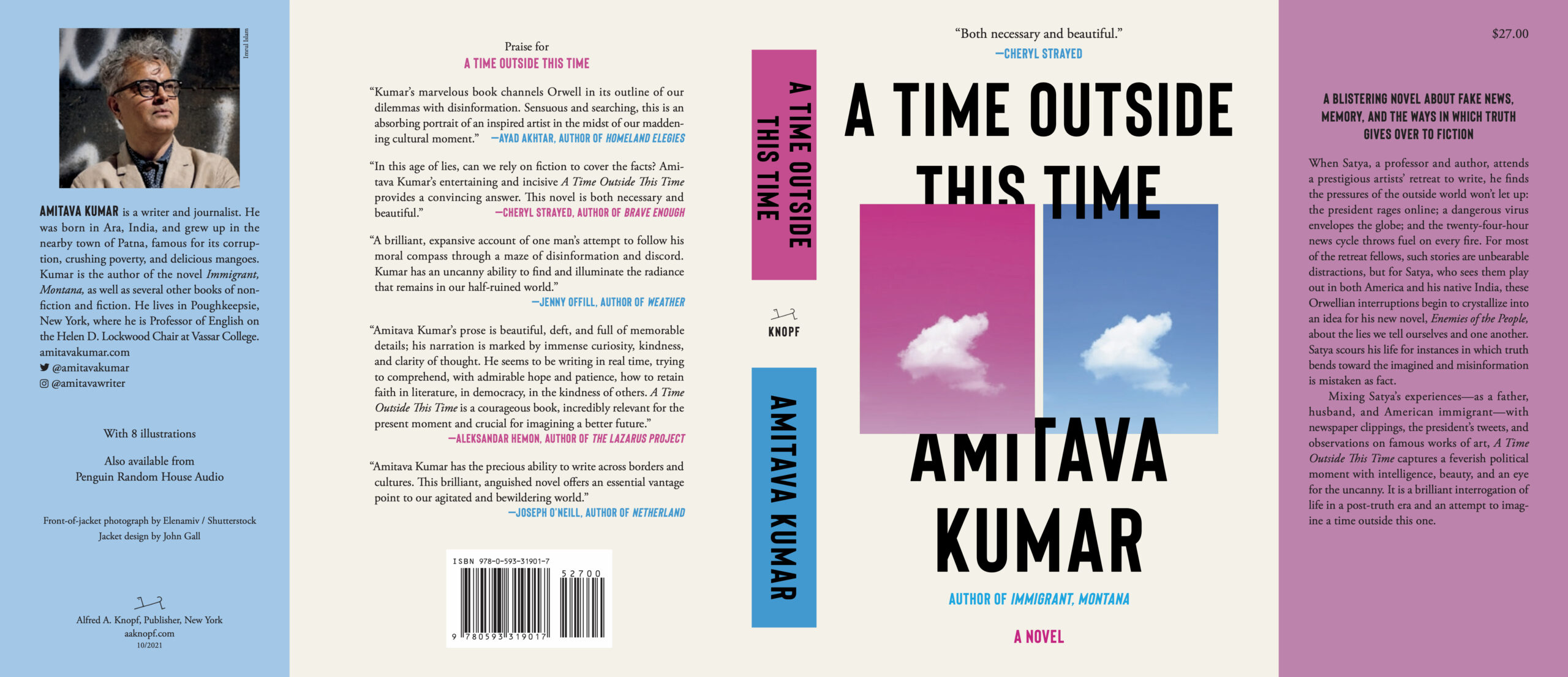
The novel comes out on Oct 5. Please pre-order here.